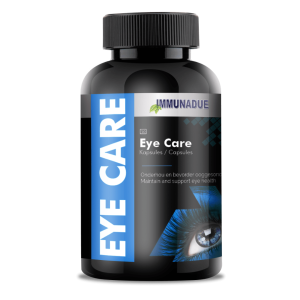- Class of Mineral:
- Zinc is an essential trace mineral and a metallic element.
- Zinc is an acidifying mineral.
- How the Body Utilizes the Mineral:
-
- Zinc is involved in numerous aspects of cellular metabolism.
- It is crucial for immune function, protein synthesis, DNA synthesis, wound healing, and cell division.
- Zinc also supports normal growth and development during pregnancy, childhood, and adolescence.
- Mineral Supplement Dosage:
- RDA: The recommended dietary allowance (RDA) for zinc is 11 mg for men and 8 mg for women.
- Typical Dietary Intake: The average daily intake of zinc in the United States is about 10 mg for men and 7 mg for women.
- Tolerable Upper Intake Level (UL): The tolerable upper intake level for zinc is 40 mg per day for adults.
- Symptoms of a shortage of the mineral:
Zinc deficiency can lead to
-
- impaired immune function,
- hair loss,
- diarrhoea,
- eye and skin lesions,
- impaired wound healing,
- loss of appetite, and
- problems with normal growth and development in children.
- Symptoms of too much of the mineral:
High levels of zinc can cause:
-
- gastrointestinal symptoms like nausea, vomiting, stomach cramps, and diarrhoea.
- It can also lead to a copper deficiency, as zinc and copper compete for absorption in the body.
- Mineral Supplement Forms:
Zinc is available in various forms, including
-
- zinc gluconate,
- zinc citrate
- zinc sulfate,
- zinc acetate, and
- zinc picolinate
Zinc gluconate and zinc citrate are considered the most bioavailable forms.
- Various food sources for the mineral:
Good food sources of zinc include:
-
- oysters,
- beef,
- pork,
- chicken,
- yogurt,
- cheese,
- beans,
- nuts,
- whole grains, and
- fortified cereals.
- How to take the mineral
- Meal Timing: Zinc supplements can be taken with or without food. However, taking them with a meal can help minimize potential stomach upset.
- Time of Day: Zinc supplements can be taken at any time of day but taking them in the morning or at mealtimes may be more convenient for some individuals.
- Other: It is essential to maintain an appropriate balance of zinc and other minerals, such as copper and iron, to avoid potential interactions and health risks.
- Positive and Negative Interactions:
- Positive Interactions:
- Vitamins and Minerals:
- Positive Interactions:
-
-
-
- Zinc enhances the absorption of vitamin A and supports the immune system when taken with vitamin C.
- Zinc and copper work together to support healthy red blood cell production and immune function.
- Zinc, when taken with vitamin E, can help protect cells from oxidative damage and support healthy skin.
-
-
-
-
- Medications:
-
-
-
-
- Zinc may increase the absorption of certain antibiotics, such as tetracyclines and quinolones.
- Zinc can improve the effectiveness of certain antiviral medications, like acyclovir.
- Other:
- Zinc has been shown to improve symptoms of the common cold when taken within 24 hours of the onset of symptoms.
- Zinc may help improve insulin sensitivity and blood sugar control in people with type 2 diabetes.
-
-
-
- Negative Interactions:
- Vitamins and Minerals:
- Negative Interactions:
-
-
-
- Zinc can interfere with the absorption of copper and iron, leading to potential deficiencies in these minerals.
- High levels of zinc can decrease the absorption of vitamin A, potentially leading to a deficiency.
-
-
-
-
- Medications:
-
-
-
-
- Zinc may reduce the absorption and effectiveness of certain antibiotics, such as penicillamine and cephalexin.
- Zinc can decrease the absorption of certain medications, like quinolone antibiotics and bisphosphonates, potentially reducing their effectiveness.
- Other:
- High doses of zinc may cause nausea, vomiting, and other gastrointestinal symptoms, especially when taken on an empty stomach.
- Long-term use of high-dose zinc supplements may be associated with an increased risk of prostate cancer.
-
-
- Contraindications and Risks:
- Individuals with certain health conditions, such as kidney disease, should consult a healthcare provider before taking zinc supplements.
- High doses of zinc can also interfere with the absorption of other minerals and may cause adverse side effects. Always follow the recommended dosage and consult a healthcare provider if you have any concerns or questions regarding zinc supplementation.






Reviews
There are no reviews yet.